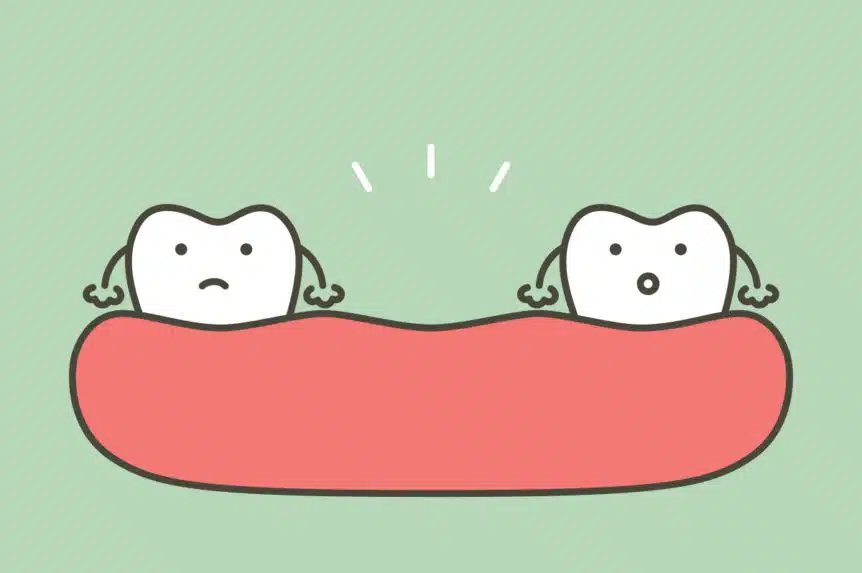What purpose do they serve and why are they recommended?
Space maintainers are devices used to hold the space open for permanent teeth to erupt after early loss of primary teeth. Reasons for premature loss of baby teeth include: trauma, decay, abscess, ectopic eruption, and/or congenital defects. Not every child who experiences premature loss requires an appliance to maintain space. It may not be recommended based on the particular child’s age and stage of growth and development. If indicated by providing pediatric dentist, know that the device serves an important function in reserving the space for the permanent tooth and not pursuing (as recommended) could result in more costly and extensive issues down the road.
Different fixed space maintainers include:
Band and loop – This device includes a band placed over one tooth and a stainless-steel wire loop. The loop rests against the tooth on the other side of the space and keeps the space open. The appliance can be removed once the permanent tooth erupts.
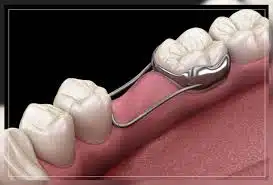
Distal shoe – This type of maintainer is only used before the eruption of the first permanent molars. It is inserted into the gum line after a baby second molar falls out prematurely. A distal shoe then helps to guide the unerupted adult molar. Once the permanent molar fully erupts, your dentist may recommend switching to a band and loop or LLHA appliance instead.
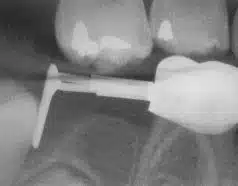
Lower lingual holding arch (LLHA) – This maintainer consists of two metal bands attached to the lower first molars connected by a wire that runs along the inside of the lower teeth. The purpose of this appliance is to maintain arch length and prevent movement of the permanent first molars.
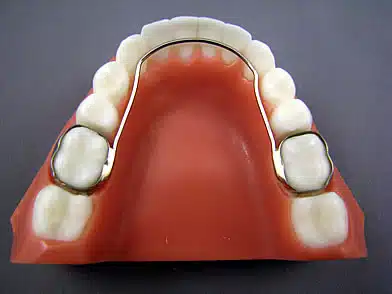
Nance appliance – This appliance is used to prevent upper permanent molars from rotating or moving forward. Patients wear this appliance while waiting for their permanent bicuspids to erupt.
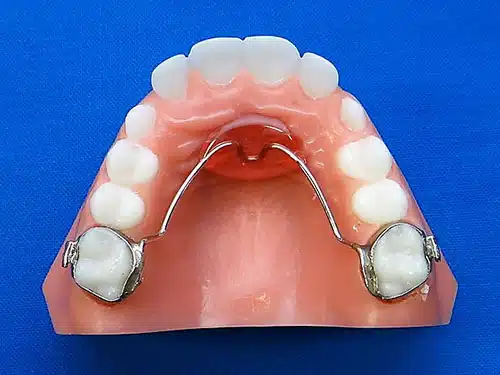
**In our office, these appliances are sent to a dental lab for fabrication. In rare cases, we are able to fabricate band and loop devices chair side. Space maintainers require special attention in regards to diet and hygiene. Brushing around spacers is very important. Avoiding sticky, chewy candies will prevent dislodgement of the bands.**
